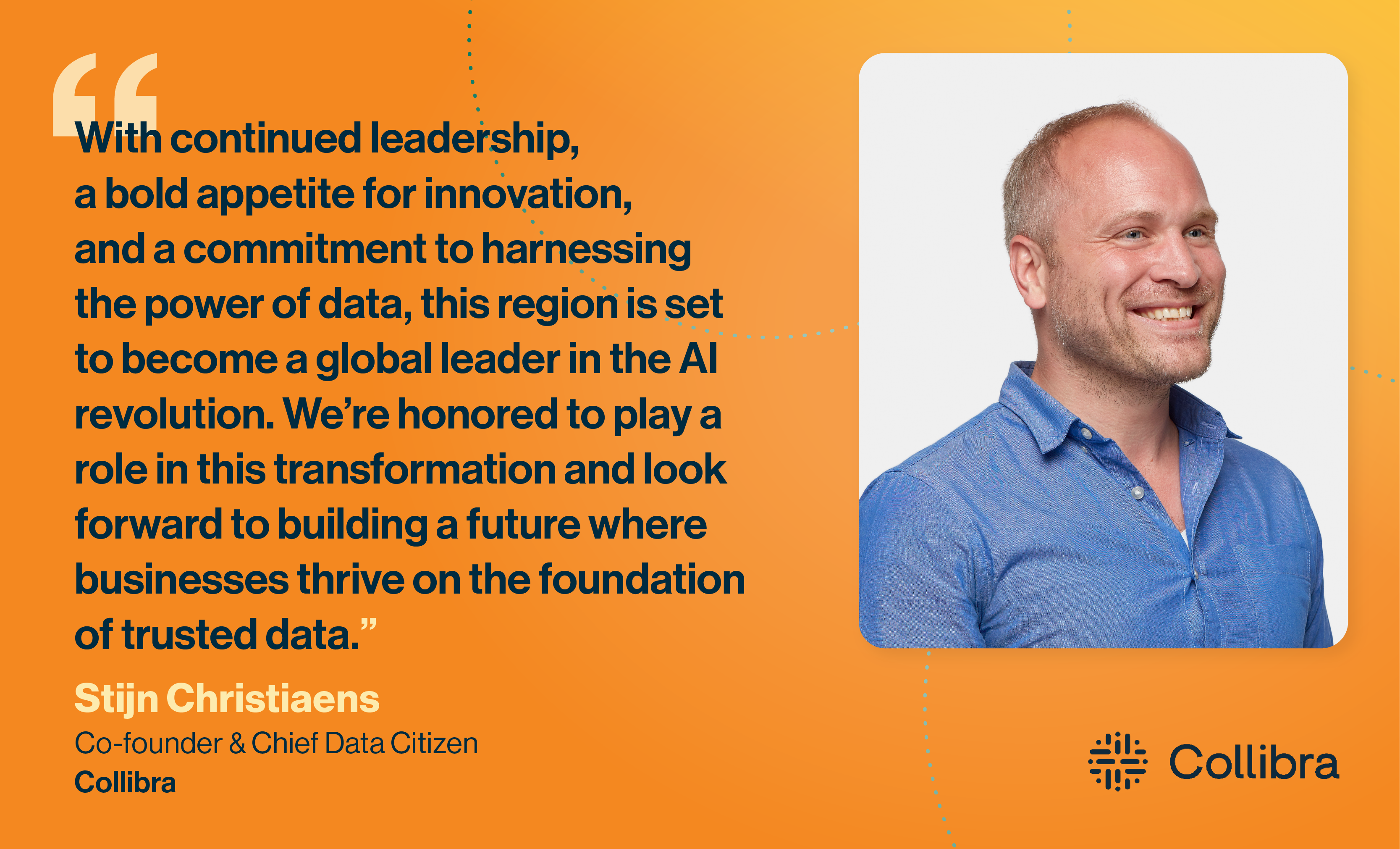While all Collibrians share a belief in the power of trusted data, we each have a different role to play in achieving our mission. Our roles are built around the unique knowledge and talents we bring to the organization.
As an organization, we believe our strengths help us not only in our current roles, but they also serve as guideposts on our professional development journeys.
Collibra’s professional development philosophy
We believe professional development should be strengths-based, personal, and Collibrian-owned.
We recently hosted an internal professional development panel with four Collibrians who have used this approach to advance their careers at Collibra — Alex Tsinman, Strategic Account Manager; Rakhi Wani, Manager, Software Engineering; JP Patterson, Senior Manager, Executive Search; and Dominika Kmieć, Manager, Test Engineering. Career development expert Tom Floyd of Flouracity moderated the panel and shared his own career story with tips for uncovering strengths and planning a path toward achieving career goals.
We summarized some key takeaways from the panel, along with more detail about the pillars of Collibra’s professional development philosophy in this blog series. Read on to learn about our strengths based approach, and check out our blogs on how to make career development personal and Collibrian-owned.
What does strengths-based mean?
We define a “strength” as something you are naturally good at, that gives you energy, and that you enjoy doing. Strengths-based development means identifying roles that will allow you to use your strengths to do your best work and grow. People who use their strengths every day are six times more likely to be engaged and 8% more productive.
“Some people confuse ‘not good at’ with ‘not liking’.” — JP Patterson
While your strengths don’t change, which strengths you use and how you apply them can change, and you can hone strengths through training and practice.
How do we discover strengths?
We discover our strengths through a combination of self-reflection and feedback.
During the panel, Tom Floyd suggested thinking about your ideal day-to-day. “We can get stuck on who we want to be — a program manager, a vice president — and not what we want to be doing.”
Alex shared his own story of recognizing his strengths early in life. “I come from a family of doctors. In fact, my mother still hopes I’ll wake up and decide to go to med school. It would have been a good match for me skillswise, but I knew it wasn’t going to make me happy.”
JP reiterated that the key is finding things you are good at and enjoy. “One thing that has driven me on my path is finding the things that give me energy. Some people confuse ‘not good at’ with ‘not liking’.”
Of course, most roles include some tasks that we enjoy less than others. The goal of strengths-based development is using your strengths to guide you toward work you are excited about, while still learning from every experience.
JP reiterated that each challenge contains opportunities to learn. “You can learn something from every experience. Whether you like it or not, whether you are good at it or not, you can learn something from it.”
Successful strengths-based development is a win-win for Collibrians and Collibra. When a Collibrian uses their strengths in their role, they enjoy their work, are good at their work, and are well-positioned to deliver for our customers.




